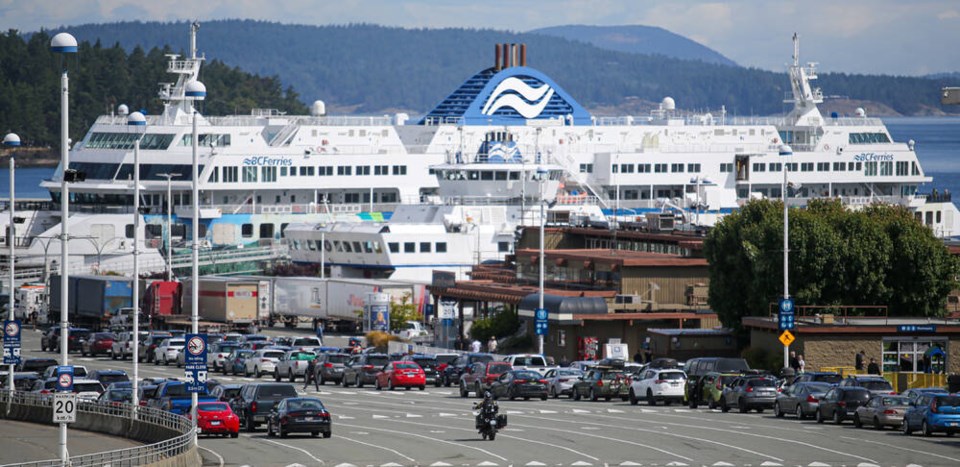Suspicions were whispered Wednesday following my column about the NDP’s legislated power grab at B.C. Ferries as to what is driving the abrupt move.
The corporation’s initial response to the pandemic’s catastrophic impact on its business is considered by some to be one reason. On April 3, 2020, in the first shocking wave of COVID-19, B.C. Ferries cut its coast-wide sailings in half. That involved issuing layoff notices with one day’s notice to 1,115 employees, about 27 per cent of its workforce.
Traffic had dropped 80 per cent in the space of a few days. The corporation was losing between $1.25 million and $1.5 million a day. The layoff notice prompted a battle with the B.C. Ferry and Marine Workers Union. Less than two weeks later the opportunity for emergency federal wage subsidies arose. The corporation reversed course and rescinded most of the layoffs. Months later, an arbitrator ruled that B.C. Ferries had breached its labour contract by attempting the layoffs.
Much of that battle played out publicly. Behind the scenes there was another argument between the corporation and the NDP government. The politicians were angered by the layoff notices. The lingering bad blood is suspected of contributing to the legislative changes introduced last week that will strip the B.C. Ferries board of directors of much of its power.
B.C. Ferries’ complicated corporate governance structure is being changed to give much more power to an obscure oversight entity, the B.C. Ferry Authority board of directors.
When the former B.C. Liberal government redesigned ferry governance 19 years ago, it created the authority as the legal “owner” of the corporation. It held the one voting share and its board was to provide strategic guidance on the operation of the ferry service and, crucially, to appoint the board of directors that oversees the actual corporation.
Bill 7, the Coastal Ferry Amendment Act, changes the balance of power considerably.
The B.C. Ferry Authority board of directors will be able to bring any and all aspects of day-to-day operations under their control by passing a resolution. Once that’s done, they can issue binding directions to the corporation through its board of directors.
The bill states that B.C. Ferries must then “comply with any direction issued … ensure its business plan takes the resolution into account and ensure its annual report … describes the actions [taken].”
For good measure, the bill gives the B.C. Ferry Authority board the power to terminate the corporation’s board of directors.
The layoffs argument is in the past, but another reason for the shakeup may lie in the future.
Building ferries in B.C. has been a dream of NDP politicians for years. But the corporation, forever focused on the bottom line, has resisted the idea. It would add a huge premium to the price of new ships, which European yards now churn out routinely.
Under the new arrangement, if the B.C. Ferry Authority board decides building ferries in B.C. is in the public interest, the corporation will have no play but to do just that. Any arguments will literally be outlawed.
The changes put a new focus on the B.C. Ferry Authority, given that it will soon more than live up to its name. It will have full authority over the ferry service. It has a nine-member board, one of whom is appointed by the B.C. Ferry and Marine Workers Union.
Four are appointed directly by the government and four come from different coastal regions served by the system.
It’s currently a mix of business and public sector executives and local figures, including a former NDP MLA (Gary Coons).
The 11-member board of directors for B.C. Ferries is a similar mix of people, all of them picked by the B.C. Ferry Authority. The chair (currently top-tier executive Brenda Eaton) collects $100,000 a year. Directors get $50,000. Retainers for the B.C. Ferry Authority board of directors are much lower. They all get free ferry passes, according to the annual report.
The bill will tighten the government’s control over the ferry system considerably, since there’s a more direct line of control to the board that will soon be calling the shots.
The corporation’s directors will still oversee management of the ferry system. But the question for taxpayers is whether two boards are worth it.



